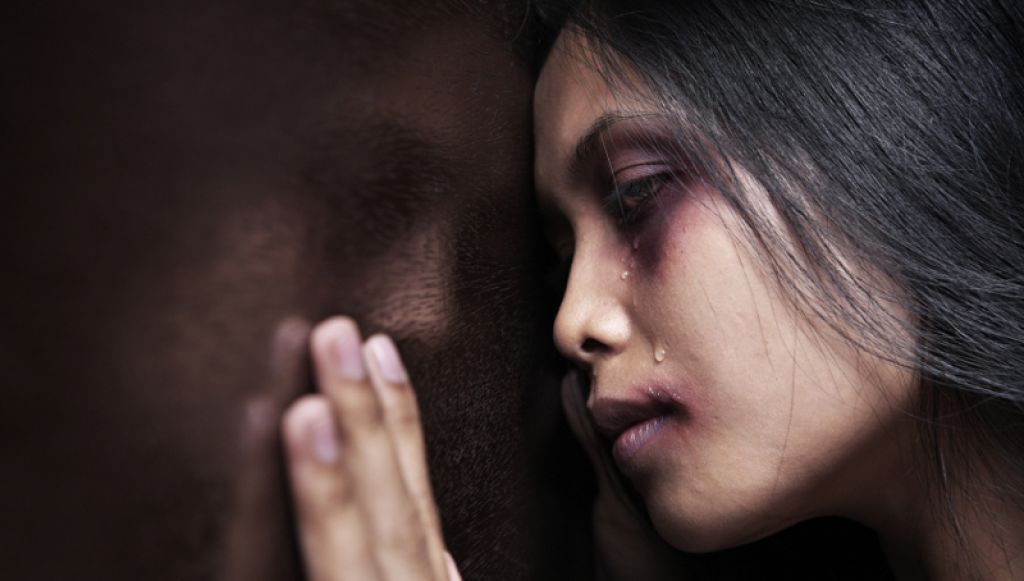A 40-year-old woman was stabbed to death allegedly by her husband over a family dispute in Dhaka’s Pallabi area according to police last Saturday. The deceased has been identified as Umama Begum Kanak, wife of Omar Faruk. An altercation broke out between them over some family matters and Omar, in fit of rage, attacked his wife with a knife, leaving her gravely injured. She breathed her last in Dhaka Medical College hospital around 5 am on 24th April.
News like this has become pretty commonplace in today’s newspapers with domestic abuse increasing exponentially during lockdown. A survey conducted by a local human rights organization, the Manusher Jonno Foundation (MJF), in 27 out of 64 districts in Bangladesh shows that 4,249 women, and 456 children were found to have been subjected to domestic violence in April 2020. Of these victims, 1,672 women and 424 children were facing violence for the first time in their lives. The women, who faced first time domestic violence blamed the lockdown for their situation.
The UN has described the worldwide increase in domestic abuse as a “shadow pandemic” alongside Covid-19. The sudden surplus of abuse victims is not just a national issue, this pattern is repeated internationally. Worldwide cases have increased 20% during the lockdown as many people are trapped with their abusers. China, the first country to impose mass quarantine in the Wuhan province, saw reported domestic abuse incidents rise threefold in February 2020 compared to the previous year. As Europe imposed quarantine measures in an effort to slow the tide of infection, the Italian government began commissioning hotels to provide shelter to the increasing number of people fleeing abusive situations. When quarantine measures extended to the United States, individual states reported similar increases in domestic abuse incidents ranging from 21% to 35%. While most developed countries were able to provide some sort of justice towards the victims, a developing country like ours is failing to even meet the basic needs of the people during a pandemic, let alone ensure justice for the weak. The Ministry of Women and Children Affairs has established a toll-free hotline for reporting abuse which assists women with medical supplies, counseling, police assistance and legal help as a step to decrease abuse but this too is still inaccessible to a vast majority of women.
While “pandemic frustration” is an easy way to excuse abusers for abominable acts, looking deeper into the issue, we cannot ignore the impact of our socio-economic structure as a direct contributing factor to the rise of violence against women. Victim blaming, adverse attitude towards working women and normalizing abuse has made seeking justice a herculean task for the majority of Bangladeshi women. A joint research conducted by ActionAid Bangladesh and Jatiyo Nari Nirjaton Protirodh Forum, titled “Spotlight on Violence Against Women in Bangladesh: Trends and Solution,” showed that as of 2019, 66% of the women in our country have faced domestic abuse, which is two thirds of the entire female population. 72.7% of these women have never disclosed their experience to outsiders. It furthers that there is 32% chance that a court will dismiss a case and release the perpetrator. With abuse, rape and violence against women in general being rampant in our country since before the pandemic began, it is becoming increasingly conspicuous that the lockdown is not a cause, but rather an excuse.
Research shows that isolation paired with psychological and economic stressors accompanying the pandemic as well as potential increases in negative coping mechanisms can come together in a perfect storm to trigger an unprecedented wave of family violence. Unemployment figures have rapidly risen. During isolation, there are also fewer opportunities for people living with family violence to call for help. Isolation also helps to keep the abuse hidden with physical or emotional signs of family violence and abuse less visible to others.
When it comes to legal recourse and protection in domestic abuse cases, the justice system falls dramatically short and many survivors of domestic violence face the same barriers that often obstruct women and girls from even filing a case in the first place. There aren’t proper laws in place for women to seek justice as well. For example, marital rape is still legal in Bangladesh. Women who are financially dependent on their husbands often have nowhere else to turn to as divorce is seen as a taboo in our nation, forcing them to live with degradation in silence. Such is not the case in only lower income households but upper-class households as well. Women have been slaves to societal norms for far longer than this pandemic has been around. At the end of the day, we have to face the troubled truth that women are not safe in their own homes and they have not been for an interminable amount of time. Wishing the pandemic away is not a solution to the depravity women face on a daily basis.
The Bangladesh government needs to take its obligations under international law seriously and punish those responsible for violence against women. This includes effectively weeding out the incompetence and corruption endemic throughout the criminal justice system. The authorities should also undertake serious prevention efforts, such as comprehensive education and awareness raising campaigns, and provide accessible services, such as psychosocial support, safe shelter, and legal assistance. Mostly we as people need to educate ourselves and educate those around us. Even the informed community within us indirectly participate in promoting rape culture, slut shaming and objectifying women. This “shadow pandemic” is not a virus we can cure with a vaccine. Rather than seeing the lockdown as an excuse for increasing rates of domestic abuse, we have to see it as a long overdue wake up call. We need active, conscious involvement from every member of our society to overcome this disease. We need long-term solutions, and we need to commit to implementing them all the way through.






















